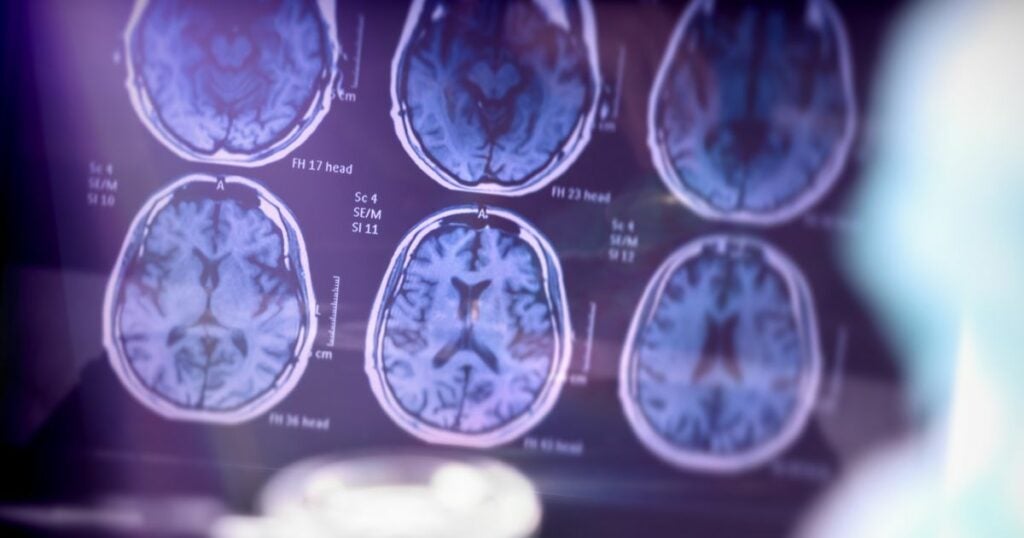- No Products In The Cart
- start shopping
Unveiling the Therapeutic Promise: Cannabis Alzheimer’s Prevention

Are you curious about the potential of cannabis in Alzheimer’s prevention? Look no further! In this guide, we will dive into the exciting realm of cannabis and its therapeutic promise in fighting against Alzheimer’s disease. Discover how cannabis compounds may unlock a new pathway for preventing neurodegenerative conditions. Get ready to explore groundbreaking research, untangle the mechanisms, and embark on a journey that could revolutionize Alzheimer’s prevention.
Understanding Alzheimer’s Disease
Alzheimer’s disease is a widespread and devastating neurodegenerative condition that affects millions of individuals worldwide. It is characterized by a progressive decline in cognitive function, memory loss, and behavioral changes. This disease not only impacts the lives of those diagnosed but also places a significant burden on their families and society as a whole.
The underlying causes of Alzheimer’s are still not fully understood, but researchers have made significant progress in unraveling its mysteries. One of the key hallmarks of the disease is the accumulation of beta-amyloid plaques and neurofibrillary tangles in the brain. These abnormal protein structures disrupt the communication between neurons and ultimately lead to their degeneration and death.
Given the prevalence and impact of Alzheimer’s disease, finding effective prevention strategies is of utmost importance. Identifying compounds or interventions that can slow down or halt the progression of the disease could significantly improve the lives of those at risk and potentially reduce the burden on healthcare systems.
The Potential of Cannabis Compounds
When we think of cannabis, the two primary compounds that often come to mind are THC (tetrahydrocannabinol) and CBD (cannabidiol). Both of these compounds have garnered considerable attention in recent years for their potential therapeutic properties.
Researchers have been exploring the neuroprotective effects of THC and CBD and their potential in preventing Alzheimer’s disease. Studies have revealed that these cannabis compounds may possess anti-inflammatory, antioxidant, and neuroregenerative properties, all of which are crucial in the fight against neurodegenerative disorders.
Inflammation and oxidative stress play significant roles in the progression of Alzheimer’s disease. The activation of the brain’s immune system and the release of inflammatory molecules contribute to the damage and death of neurons. Additionally, oxidative stress, which occurs due to an imbalance between harmful free radicals and the body’s antioxidant defenses, leads to cellular damage and accelerates cognitive decline.
Research suggests that THC and CBD have the potential to mitigate inflammation and oxidative stress in the brain. These compounds interact with the body’s endocannabinoid system, a complex network of receptors involved in various physiological processes, including inflammation regulation. By modulating the activity of these receptors, THC and CBD may help reduce neuroinflammation and the resulting damage to neurons.

Furthermore, studies have indicated that THC and CBD may also play a role in reducing the accumulation of beta-amyloid plaques, a hallmark feature of Alzheimer’s disease. Beta-amyloid plaques are toxic protein aggregates that build up in the brains of affected individuals, disrupting neuronal function. Preliminary research suggests that THC and CBD may help prevent the formation of these plaques or facilitate their clearance, potentially slowing down the progression of the disease.
While the findings are still in the early stages, the potential of THC and CBD in preventing Alzheimer’s disease is promising. However, it is important to note that more research is needed to fully understand the mechanisms involved and to determine optimal dosages and treatment approaches.
Future Directions
The connection between cannabis and Alzheimer’s prevention offers a compelling avenue for future research and therapeutic development. As our understanding of the neuroprotective properties of THC and CBD deepens, researchers are exploring various strategies to harness their potential.
Clinical trials focusing on cannabis-based treatments for Alzheimer’s are already underway, with the aim of evaluating the safety, efficacy, and optimal delivery methods. These trials will provide valuable insights into the potential benefits and risks associated with cannabis use in the prevention and management of Alzheimer’s disease.
In conclusion, while the field of cannabis and Alzheimer’s prevention is still evolving, the research conducted so far highlights the promising potential of THC and CBD in mitigating neuroinflammation, oxidative stress, and beta-amyloid plaque accumulation. By understanding the mechanisms of action of these cannabis compounds, researchers can pave the way for effective preventive measures and novel therapeutic interventions.
As we continue to unlock the secrets of cannabis and its role in preventing Alzheimer’s disease, we move closer to a future where this debilitating condition may be slowed down or even prevented altogether. Through ongoing research and collaboration, we can provide hope for individuals at risk and their families, offering them the possibility of a brighter and healthier future.

Exploring the Mechanisms
Diving deeper into the mechanisms through which cannabis compounds may exert their effects in preventing Alzheimer’s reveals a fascinating interplay between THC, CBD, and the endocannabinoid system—a vital system responsible for maintaining brain health.
The endocannabinoid system consists of cannabinoid receptors (CB1 and CB2) distributed throughout the body, including the brain. THC, the psychoactive compound in cannabis, has a high affinity for CB1 receptors, primarily located in the central nervous system. CBD, on the other hand, interacts with CB2 receptors, found mainly in the immune system and peripheral tissues. These interactions modulate the activity of the endocannabinoid system, leading to various physiological effects.
One of the potential benefits of THC and CBD in Alzheimer’s prevention lies in their ability to reduce neuroinflammation. Neuroinflammation is a common feature of neurodegenerative diseases, including Alzheimer’s. By activating CB1 and CB2 receptors, THC and CBD may suppress the release of pro-inflammatory molecules, dampening the inflammatory response in the brain. This reduction in neuroinflammation can help preserve neuronal integrity and function.
Furthermore, THC and CBD may promote improved synaptic function—the vital connections between neurons that facilitate communication. Studies suggest that THC enhances the release of certain neurotransmitters and facilitates synaptic plasticity, the brain’s ability to reorganize neural connections. CBD, on the other hand, may protect against synaptic damage and improve synaptic signaling. By enhancing synaptic function, THC and CBD may help counteract the cognitive decline seen in Alzheimer’s disease.
Another intriguing mechanism is the potential of THC and CBD to promote neurogenesis—the birth of new neurons in the brain. Neurogenesis occurs throughout life, particularly in regions important for learning and memory. Emerging evidence suggests that cannabinoids, including THC and CBD, can enhance neurogenesis in animal models. This effect holds significant promise for Alzheimer’s prevention, as the disease is characterized by the loss of neurons. By stimulating the production of new neurons, THC and CBD may help maintain cognitive function and slow down disease progression.
Current Research Findings
Recent studies investigating the effects of cannabis on Alzheimer’s prevention have yielded noteworthy findings. One study published in the Journal of Alzheimer’s Disease found that low-dose THC treatment reduced beta-amyloid levels and improved cognitive performance in a mouse model of Alzheimer’s. The researchers observed a decrease in beta-amyloid plaque accumulation and an improvement in memory and learning tasks.
Another study published in Aging and Mechanisms of Disease explored the effects of CBD on beta-amyloid-induced neuroinflammation in human cells. The results demonstrated that CBD reduced the production of pro-inflammatory molecules and protected neurons from inflammation-induced damage. These findings support the potential anti-inflammatory properties of CBD in Alzheimer’s prevention.
While the results are promising, it is important to note the limitations of existing research. Many studies have focused on animal models or in vitro experiments, and extrapolating these findings to humans requires caution. Additionally, the optimal dosages, treatment durations, and delivery methods of cannabis compounds for Alzheimer’s prevention are yet to be determined. Further research, including well-designed clinical trials, is needed to establish the safety and efficacy of cannabis-based treatments in humans.
Potential Therapeutic Applications
Exploring potential therapeutic applications of cannabis in Alzheimer’s prevention raises both exciting possibilities and important considerations. Cannabis holds promise as a preventive measure for individuals at risk of developing Alzheimer’s due to its potential neuroprotective effects. However, several challenges must be addressed before cannabis-based treatments can be widely utilized.
One significant consideration is the complex legal and regulatory landscape surrounding the use of cannabis for medical purposes. While some regions have legalized the medical use of cannabis, others maintain strict regulations or consider it illegal. Establishing a clear legal framework and standardization of cannabis-based treatments is crucial for the safe and effective use of these interventions in Alzheimer’s prevention.
Furthermore, the psychoactive properties of THC pose challenges for its widespread use. Balancing the therapeutic benefits with potential side effects, such as cognitive impairment and psychotropic effects, requires careful evaluation. Developing THC formulations or alternative cannabinoids that provide neuroprotective effects without the psychoactive properties may be a potential avenue for future research.
Moreover, individual variability in response to cannabis compounds needs to be considered. Factors such as genetics, age, underlying health conditions, and concurrent medication use can influence how individuals respond to THC and CBD. Personalized approaches and tailored treatment plans may be necessary to optimize the potential benefits of cannabis in Alzheimer’s prevention.
Conclusion
Exploring the mechanisms, current research findings, and potential therapeutic applications of cannabis in Alzheimer’s prevention reveals a fascinating field of study. The interaction between THC, CBD, and the endocannabinoid system offers promise in reducing neuroinflammation, enhancing synaptic function, and promoting neurogenesis. However, further research and clinical trials are essential to establish the safety, efficacy, and optimal use of cannabis-based treatments. Addressing legal and regulatory aspects and considering individual variability are crucial steps toward harnessing the potential of cannabis in the prevention of Alzheimer’s disease.
FAQs

What is brain booster?
A brain booster refers to any substance or activity that is believed to enhance cognitive function, memory, focus, or overall brain health. It can include supplements, lifestyle changes, mental exercises, and more. However, it is important to note that not all brain boosters have scientific evidence to support their effectiveness.
Is omega-3 good for memory?
Yes, omega-3 fatty acids, particularly docosahexaenoic acid (DHA), have been associated with improved memory and cognitive function. Omega-3 fatty acids are essential nutrients found in fatty fish, walnuts, flaxseeds, and chia seeds. They play a crucial role in brain health, supporting the structure and function of brain cells.
Which oil is best for the brain?
Extra-virgin olive oil is considered one of the best oils for brain health. It is rich in antioxidants and anti-inflammatory compounds, which can help protect the brain from oxidative stress and inflammation. Additionally, olive oil is a source of healthy monounsaturated fats, which have been linked to improved cognitive function and a reduced risk of age-related cognitive decline.
Which oil is best for memory?
Coconut oil has gained attention for its potential benefits on memory and cognitive function. It contains medium-chain triglycerides (MCTs), which can provide a readily available source of energy for the brain. Some studies suggest that MCTs in coconut oil may improve memory in individuals with cognitive impairments, but more research is needed to fully understand its effects.
Is fish oil good for Alzheimer’s?
Fish oil, rich in omega-3 fatty acids, has been studied for its potential benefits in Alzheimer’s disease. While the evidence is mixed, some studies suggest that omega-3 fatty acids from fish oil may help slow down cognitive decline and reduce the risk of Alzheimer’s. However, more research is needed to determine the optimal dosage, duration, and efficacy of fish oil supplementation for Alzheimer’s prevention and treatment.
